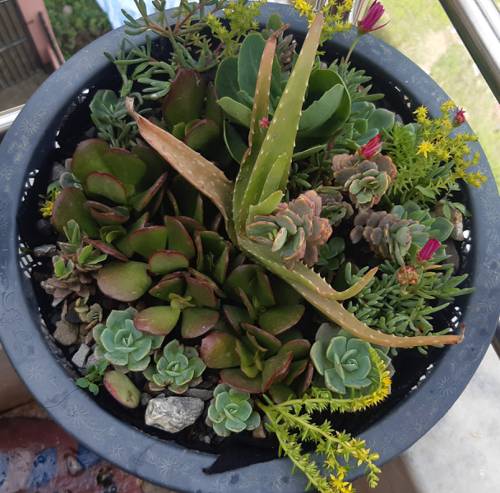
FAQ About Indoor Plant Ethical Cultivation

What is ethical indoor plant cultivation?
Ethical indoor plant cultivation refers to the practice of growing plants indoors in a manner that is environmentally sustainable, socially responsible, and conserves plant biodiversity. This includes sourcing plants from sustainable growers, using organic or low-impact growing methods, and ensuring that plant purchases support fair labor practices and do not contribute to the exploitation of natural ecosystems.

Why is sustainable sourcing important in indoor plant cultivation?
Sustainable sourcing is crucial in indoor plant cultivation to prevent the overexploitation of natural populations, which can lead to ecological imbalances and the potential extinction of certain species. By choosing plants from sustainable sources, you support growers who respect environmental limits and contribute to preserving plant diversity.

How can I ensure the indoor plants I buy are ethically sourced?
To ensure your indoor plants are ethically sourced, purchase from nurseries or sellers that are transparent about their sourcing practices. Look for certifications such as those from organic certification bodies or organizations that assess sustainable and fair labor practices. Asking questions about the origin of the plants and any conservation measures the seller might support is also a good practice.

What are some environmentally-friendly care practices for indoor plants?
Environmentally-friendly care practices for indoor plants include using organic or natural fertilizers, opting for recyclable or biodegradable planters, conserving water through efficient watering practices, and avoiding chemical pesticides. Instead of chemical pesticides, consider natural pest control options such as neem oil or introducing beneficial insects.

How does cultivating certain plant species indoors help with species conservation?
Cultivating certain plant species indoors can aid in species conservation by reducing the demand for wild-collected plants, which can deplete natural populations. Responsible growers sometimes focus on propagating rare or endangered species, contributing to genetic diversity and ex-situ conservation efforts.

Can growing indoor plants be harmful to the environment?
Growing indoor plants can be harmful to the environment if not done ethically, such as by supporting illegal plant poaching or using resources inefficiently. However, with conscious practices like sustainable sourcing, eco-friendly care, and minimizing resource consumption, the environmental impact can be significantly reduced.

What is the impact of illegal plant trade on biodiversity?
The illegal plant trade poses a significant threat to biodiversity as it often involves the unsustainable harvesting of plants from their natural habitats, leading to population declines and even extinction. This illicit activity reduces genetic diversity, which is critical for the resilience of ecosystems.

What role do certifications play in ethical plant cultivation?
Certifications like Fair Trade, organic labels, and specific sustainability certifications help ensure that indoor plants are cultivated and sourced responsibly. These certifications can verify that growers adhere to environmental, social, and labor standards, assuring consumers that their purchases do not support harmful practices.

How can indoor plant owners contribute to sustainability?
Indoor plant owners can contribute to sustainability by selecting plants that thrive in their specific environment, thereby reducing resource use, and by supporting local nurseries and sustainable farms. They can also participate in plant swaps and propagation to minimize new purchases and reduce their ecological footprint.

What are the benefits of using organic fertilizers for indoor plants?
Organic fertilizers offer several benefits, including improving soil health by supporting beneficial microorganisms, releasing nutrients slowly to avoid nutrient runoff, and being free from synthetic chemicals that can harm the environment and human health. Using organic fertilizers aligns with sustainable and ethical cultivation practices.

How does water conservation play a role in ethical indoor plant care?
Water conservation is crucial in ethical indoor plant care as it helps minimize resource waste. Effective water-saving techniques include using self-watering pots, collecting rainwater for irrigation, and understanding the specific water needs of each plant to avoid overwatering.

What are some common misconceptions about ethical indoor plant cultivation?
Common misconceptions include the idea that ethical cultivation is too expensive or difficult to practice. In reality, ethical practices can save money in the long term through reduced resource use and healthier plants. Additionally, another misconception is that all plant sellers follow ethical practices, which is not always the case, thus the importance of diligent sourcing.

How can I avoid supporting harmful labor practices in plant cultivation?
To avoid supporting harmful labor practices, it's important to research the sellers and suppliers from whom you purchase plants. Look for fair labor certifications and ask about the working conditions at nurseries. Support businesses that are transparent and committed to fair trade practices.

Can planting native species indoors help the environment?
Planting native species indoors can help the environment by promoting local biodiversity and reducing the strain on exotic species' natural habitats. Native plants are often more adapted to the local environment, requiring fewer resources such as water and specialized care, thereby fostering a more sustainable indoor plant ecosystem.

What are the challenges of maintaining ethical practices in urban environments?
Challenges include limited access to sustainably sourced plants, higher costs associated with ethical products, and availability of suitable indoor plants that align with both ethical standards and urban living needs. Creativity and community involvement can help overcome these challenges, such as creating urban plant swaps and sourcing locally when possible.

Is using peat-based soil mixes against ethical practices?
The use of peat-based soil mixes is generally controversial in ethical practices due to peat extraction's negative environmental impact, which includes habitat destruction and increased carbon emissions. Alternatives such as coconut coir, compost, or other peat-free products provide more sustainable options for indoor plant cultivation.

How does supporting local nurseries impact ethical cultivation?
Supporting local nurseries often aligns with ethical cultivation practices by reducing the carbon footprint associated with transporting plants over long distances and by promoting local economies. Local nurseries may also have more control over their sourcing and growing practices, making it easier for consumers to verify the ethics of plant purchases.

What are the ethical implications of owning rare or exotic indoor plants?
Owning rare or exotic indoor plants can be ethically complex. If these plants are sourced sustainably without harming their natural populations, their cultivation can aid conservation efforts. However, if they are collected illegally or unsustainably, it can contribute to biodiversity loss and ecosystem damage, making it important to verify their origin.

How can technology assist in ethical indoor plant cultivation?
Technology can assist in ethical indoor plant cultivation by providing tools for efficient watering and lighting systems, enabling remote monitoring of plant health, and offering platforms for knowledge sharing regarding sustainable practices. Apps can also help track plant needs and connect consumers to ethical plant sources.

What are the signs of an ethically-run plant nursery?
Signs of an ethically-run plant nursery include transparent sourcing policies, certifications for organic or fair trade practices, sustainable cultivation methods, and engagement in local biodiversity conservation initiatives. Ethical nurseries often educate customers about responsible plant care and provide detailed information about plant origins.
